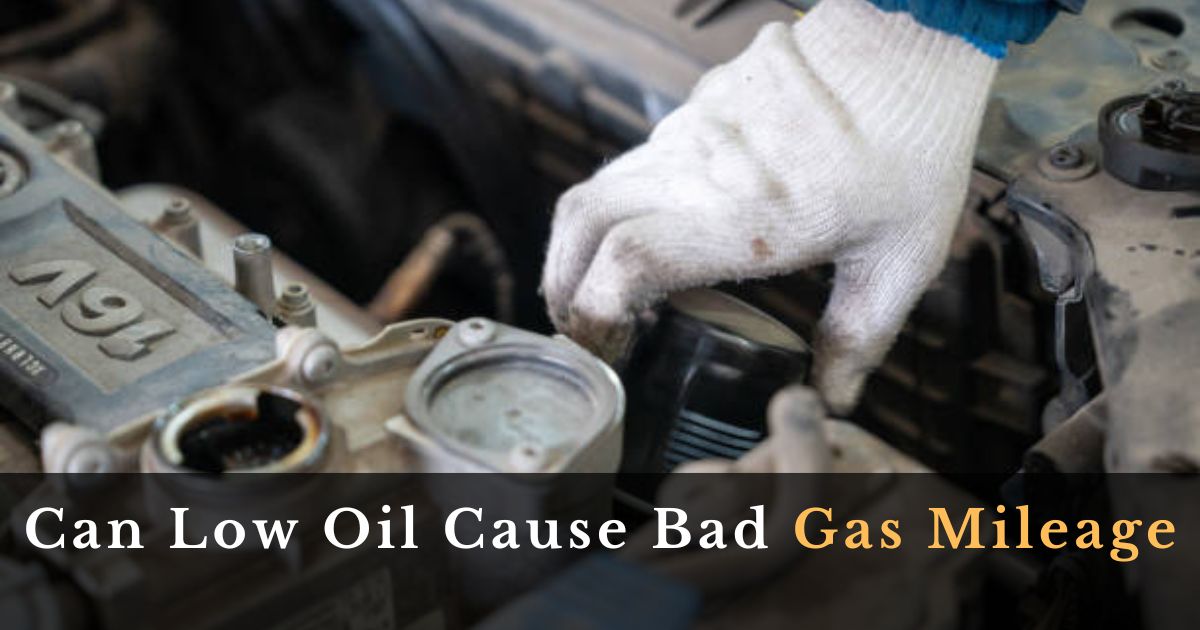Can low oil cause bad gas mileage, When we talk about taking care of our cars, one of the most important things is changing the oil regularly. But did you know that not having enough oil can make your car use more gas? A lot of drivers don’t realize that how much oil their car has affects how far they can drive on a gallon of gas. In this article, we’ll talk about how not having enough oil can make your car use more gas and what you can do to make sure your car runs well.
Can Low Oil Cause Bad Gas Mileage
When it comes to the health of your vehicle, oil plays a crucial role. But what happens if your oil levels dip too low? Let’s delve into how low oil can impact your gas mileage and overall vehicle performance.
Understanding the importance of oil in a vehicle
Oil serves as the lifeblood of your engine, lubricating its various components to ensure smooth operation. Without an adequate supply of oil, your engine can suffer from increased friction and overheating, leading to potential damage.
Effects of low oil on engine performance
Reduced lubrication
Low oil levels mean less lubrication for your engine’s moving parts. This can result in increased friction between components, leading to premature wear and tear.
Increased friction
As friction builds up due to inadequate lubrication, your engine has to work harder to function properly. This extra strain can result in decreased fuel efficiency and poor gas mileage.
Overheating
Proper lubrication helps dissipate heat generated by your engine. When oil levels are low, your engine may struggle to regulate its temperature, leading to overheating issues that can further degrade performance.
How to Maintain Proper Oil Levels
Maintaining the correct oil level is key to ensuring good gas mileage and a healthy engine. Here are some tips:
Regular Oil Checks: Check your oil level at least once a month. Use the dipstick to ensure the oil is between the minimum and maximum marks.
Timely Oil Changes: Follow your car manufacturer’s recommendations for oil changes. Typically, this is every 3,000 to 5,000 miles, but it can vary based on your car’s make and model.
Use the Right Oil: Make sure you’re using the right type of oil for your car. Consult your owner’s manual or a trusted mechanic.
Watch for Leaks: Regularly inspect your car for any signs of oil leaks. Fixing leaks promptly can prevent low oil levels and engine damage.
Impact of engine performance on gas mileage
Increased fuel consumption
An engine that is not operating at its due to low oil levels will require more fuel to maintain performance. This increased fuel consumption directly translates to poorer gas mileage and higher expenses at the pump.
Decreased efficiency
With compromised engine performance, your vehicle’s overall efficiency takes a hit. You may find yourself making more frequent trips to the gas station, further adding to your fuel costs.
Signs of low oil in a vehicle
Keeping an eye out for signs of low oil can help you address issues before they escalate. Common indicators include dashboard warning lights, engine knocking or ticking sounds, and unusual exhaust smoke.
Importance of regular oil checks and changes
To prevent the negative effects of low oil on your vehicle, it’s essential to adhere to regular maintenance schedules. This includes checking your oil levels regularly and following manufacturer recommendations for oil changes.
Tips for maintaining proper oil levels
Checking oil levels regularly
Make it a habit to check your oil levels at least once a month, or more frequently if you notice any signs of trouble.
Following manufacturer recommendations for oil changes
Consult your vehicle’s owner’s manual for guidance on how often to change your oil. Typically, this interval falls between 3,000 to 5,000 miles, but it may vary depending on your driving habits and the type of oil used.
Addressing leaks promptly
If you notice any oil leaks or drips under your vehicle, have them inspected and repaired as soon as possible to prevent further oil loss.
Low oil levels can definitely cause bad gas mileage. By increasing friction, causing overheating, and leading to engine wear and tear, insufficient oil makes your engine work harder and consume more fuel. Regular oil checks, timely changes, and using the correct oil are simple steps to maintain your car’s fuel efficiency. Keep an eye on your oil levels, and your car will reward you with better performance and more miles per gallon.
FAQs
How often should I check my oil levels?
It’s recommended to check your oil levels at least once a month, or more frequently if you notice any signs of trouble such as dashboard warning lights or unusual engine noises.
Can low oil damage my engine?
Yes, low oil can lead to increased friction and overheating, which can cause premature wear and tear on your engine if left unaddressed.
What should I do if I notice signs of low oil?
If you notice signs of low oil, such as dashboard warning lights or engine knocking sounds, it’s essential to check your oil levels immediately and top up if necessary. If the problem persists, consult a mechanic for further inspection.
How often should I change my oil?
The frequency of oil changes varies depending on factors such as your driving habits and the type of oil used. Refer to your vehicle’s owner’s manual for specific recommendations.
What are the consequences of ignoring low oil levels?
Ignoring low oil levels can lead to decreased engine performance, increased fuel consumption, and potentially costly repairs due to engine damage.



